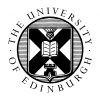© Pint of Science, 2025. All rights reserved.
The CRISPR gene editing tool has revolutionised the way we do genetic editing and manipulation, making it much easier to shape the traits of plants, animals, and everything in between. But what does accessible genetic modification mean for us in our human societies? Would you eat a CRISPRed cow?
CRISPRed livestock
Professor Bruce Whitelaw
(Deputy Director (Partnerships) at The Roslin Institute)
Genome editing technologies enable really amazing things to be done. We need to mitigate risk where it exists and carefully deploy this exciting technology to help society. At The Roslin Institute we focus on advancing animal genetics and health. We are exploring how to apply genome editing technology to advance animal health and welfare. If initial projects do indeed produce healthy, disease-resistant animals then we could see genome edited animals in our food chain in about 7 years. We should view this application light of how genome editing technologies could be applied to ourselves.
The bioethics of genome editing
Dr Sarah Chan
(Chancellor’s Fellow at the Usher Institute for Population Health Sciences and Informatics, and Deputy Director of the Mason Institute for Medicine, Life Sciences and Law, University of Edinburgh)
Genetic modification has long been the subject of bioethical attention, however the advent of ‘genome editing’ technology such as CRISPR has provoked renewed interest due to its comparative efficiency and precision. Genome editing has the potential to revolutionise research and healthcare, but the specific applications and their implications must be carefully considered.
Map data © OpenStreetMap contributors.
